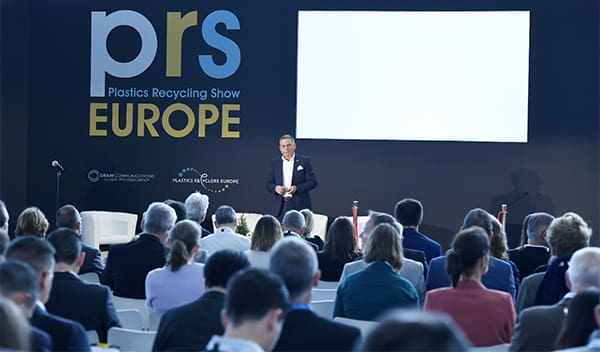
Bunting Magnetics at K2022: Plastics and the Circular Economy
As a key supplier of metal separation equipment to the plastics sector, Bunting once again exhibited. With a growing product portfolio, the Bunting stand was bigger than any previous year. This attracted a high number of visitors with enquiries received from countries all over the world and as far afield as Brazil, Thailand, South Africa, and Australia.
The team on the Bunting stand was also multi-national having travelled across from North America, United Kingdom, and Italy, joining local German representative 3SMI. This was also the first international trade show attended by Robert Bunting since the announcement of his appointment as President and CEO of the global Bunting Group.
A Changing Plastics Industry
Environmental concerns are driving significant changes in the plastics industry. There is a global drive towards reducing the reliance on single-use plastics, as found in packaging, and many users are moving away from plastic to other materials (e.g., Amazon replacing plastic packaging with cardboard).
Nevertheless, plastic is an important versatile material used in the manufacture of a plethora of products from high-performance automotive components to plastic bottles. With the global aim for a circular economy driving innovation in plastic product design, equipment manufacturers are being equally innovative.
From Primary Production to Recycling
Not unlike every other manufacturing sector, primary plastics manufacturers are focused on reducing waste to an absolute minimum. Any waste that is produced is reclaimed, recycled and used as a raw material.
Recovering, recycling and reusing plastic waste from the consumers, both domestic and industrial, is far more challenging. The solution is a multi-stage process of material separation, with many of the separators on display at K 2022.
Focused on Metal Separation
The Bunting stand at K 2022 was devoted to solving the problem of metal contamination. In the production of plastic and plastic products, rogue metal damages equipment and causes product defects, both of which are a source of unnecessary waste. This is avoidable with the installation of a combination of magnetic separators and metal detectors, and production-scale models were on display and operating on the Bunting stand.
The layout of each plant will dictate the location of the metal separators. Easy-to-Clean FF Drawer Filter Magnets commonly mounted directly above injection moulding machines, are designed to remove ferrous metal contaminants from virgin and recycled plastic beads with no waste of product. Metal Detectors of various types are then used to remove any non-ferrous metal contaminants from virgin and recycled plastic beads, A combined FF Drawer Filter Magnet and gravity-fed metal detector will remove all-metal from virgin and recycled plastic beads or granulated internally-generated plastic waste.
Optimum metal separation is also essential when processing plastic waste. The Eddy Current Metal Separation Module, operating on the stand at K 2022, separated ferrous metals and then small aluminium from shredded PET. The combination of the high-intensity Drum Magnet and Eddy Current Separator provides an important stage of metal separation in recycling operations globally.
An Evolving Future for Plastics
“Our stand was busy from the moment the exhibition doors opened,” said Alan Why, Bunting’s European Sales Manager. “There is no doubt that the plastics sector is undergoing a transformation and this is driving up the demand for technology. Primary producers and recyclers need proven separation technology that maximises metal separation. The K 2022 trade fair gave us the opportunity to demonstrate the capability of our separators. And seeing is believing.”
Read more news from Bunting here.
![]()
Bunting
+44 (0) 1527 65858
Website
Email





